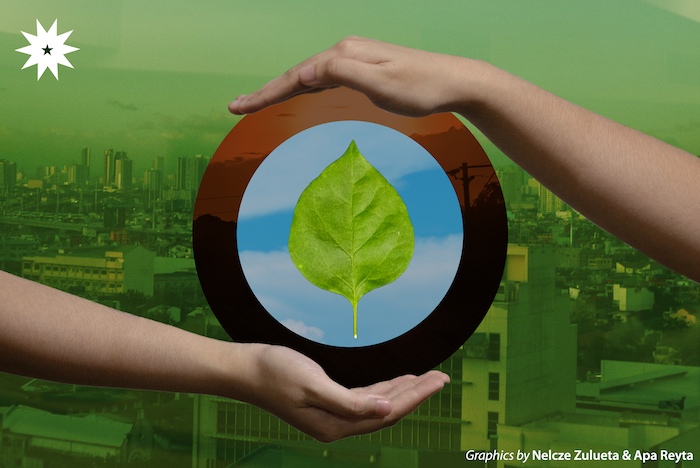Sustainability has been a prominent topic in many fields throughout the past decade, encompassing many different aspects of society. In chemistry, engineering, and other technical fields, sustainability may refer to shifting to products like bioplastics or recyclable materials. The movement pushing for sustainability around the world has prompted businesses and individuals to opt for sustainable practices in recent years. The 17 Sustainable Development Goals (SDG) under the United Nations is an example of this global push.

From hunger and poverty to economics and livelihood, these SDGs are very comprehensive, but also deemed to be broad. To truly focus the lenses of the SDGs on the Philippines and all the issues the nation faces, the nonprofit community Sustainable PH launched the webinar “Sustainability Unplugged”, which tackles the roles of each SDG in the Philippine context. The webinar splits the audience into multiple concurrent breakout sessions, each tackling different SDGs. Shawntel Nieto, president of Sustainable PH, expressed that audience connection and collaboration are essential ideas like sustainability, ”[ideas] that want to change the world,” she said.
An issue long lingering
In the Philippines, health and poverty remain as long-standing issues—and in relation to the SDGs—it is perhaps the most important one. Dr. Via Roderos, COO of Alaga Health Inc., brought forward the social determinants of health, noting the obvious social factors such as access to healthcare, education, neighborhood, and community. Perhaps intertwining all these is economic instability or poverty. After all, being impoverished is a leading factor in the lack of accessibility to such social factors.
Fueling lives
The plans for the lives of the Filipino people—ones that promote fulfillment and prosperity—can be drawn from SDG 7 to 11 that discuss clean energy, economic growth and inequality, industry and infrastructure, and communities. Spearheading this discussion, Dr. Robert Siy, advisor and co-convenor of the Move As One Coalition, spoke of the problems in public transportation, particularly ones that affect the transport operators. Siy noted the consequences of the pandemic and lockdowns as an example, with new laws enacted having “driven so many into bankruptcy”. A solution for this, he explained, is a service contract between the government and transport operators.
In the same vein, Patch Dulay, founder and CEO of The SPARK Project, focuses on the importance of the grassroots, and in the case of public transport—the drivers. He emphasized that, in this push toward sustainability and less energy consumption, the needs of strengthening the grassroots should not be compromised. “Make them [a] part of the conversation,” stated Dulay.
Another point of discussion is the workplace, particularly the idea of four-day work weeks as well as remote working. Dulay exemplified his company regarding work-from-home (WFM) setups, explaining that even after the pandemic, he found that a remote setup proved to be very productive for his team as well with certain issues like traffic and long travels no longer being an issue. Ultimately, as Siy puts it, the true issue lies with how to implement these solutions in such a way that it benefits those who are the most affected—the workers of the country.
To lend a hand
Arizza Nocum, a co-founder of KRIS LIBRARY, focused on SDG 16 and 17 to state three calls to action of promoting peace, justice, and inclusivity. The first is the need to reach out to the people in Mindanao and other remote areas. By allowing these areas to grow and thrive, Nocum explained that the youth, rather than falling into militant groups, will be able to find opportunities for growth. The second call to action encourages youth and women to join this discussion on sustainability. Finally, the third call to action is to simply have respectful dialogue by possessing open minds and following basic etiquettes.
One with the environment
Beyond just talks, agreements, and legislation, the environment is another aspect of sustainability that requires funds and research. When it comes to the topic, speaking about the environment is unavoidable in the Philippines, especially since it is rich in natural resources. Rodne Galicha, executive director of Living Laudato Si Philippines, explained that protecting the environment starts with us. Essentially, the protection of the environment is not solely in the hands of the government, private sector, nonprofit organizations, or an entire community; it is also the responsibility of each individual.
This brings back the words of Siy and Dulay; the expectations for individuals to be beacons of environmental justice might be too much for many. Issues with health, income, and day-to-day work leave little room for Filipinos to worry about a piece of plastic on the floor—let alone the depleting natural resources and microplastics in the air.
As the event concluded, it proved to be a hub for innovative ideas with concrete actions on sustainability. Even so, as Nieto explained, it is all about collaboration with other people—with other sectors, with government officials, with CEOs, with students, and of course, with the workers of the country.
